We explore the figure of Abraham Lincoln, and explain how he became president. In addition, we discuss his primacy and death.
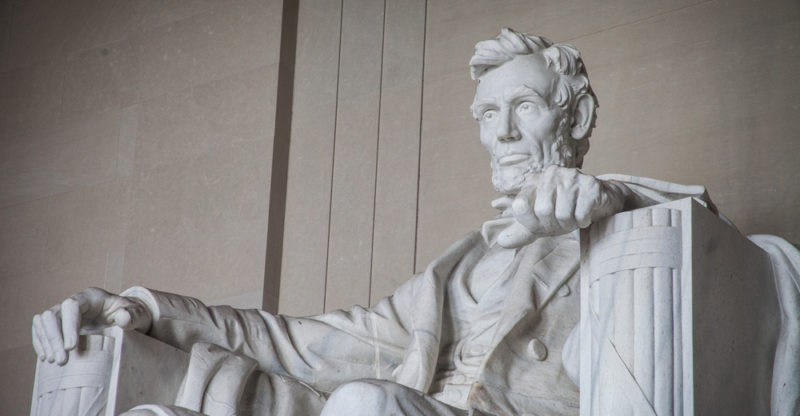
Who was Abraham Lincoln?
Abraham Lincoln was an American lawyer and politician, renowned for leading the United States through the Civil War (1861-1865), the bloodiest internal conflict in American history. He served as the 16th president of the United States of America.
Lincoln came to the presidency with the Republican Party. His ideas received little support in the Southern states, which eventually led to a civil war. The country thus became divided into North and South on various issues, particularly the abolition of slavery, and their views seemed irreconcilable.
In addition to abolishing slavery, he modernized the US economy and strengthened the unified federal government. Today, Lincoln is revered as an exceptionally skilled politician and as one of the greatest presidents in the history of the United States.
His figure has been commemorated in books and films, and among numerous other memorials, the famous Lincoln Memorial was erected in his honor in Washington D.C. in 1922. His portrait appears on the one-cent coin and the five-dollar bill of the United States currency.
- See also: Lech Walesa
Birth of Abraham Lincoln
Abraham Lincoln was born in Hodgenville, Kentucky, on February 12, 1809.
Both his parents were Baptist Christian farmers born in Virginia, of English descent.
During his childhood, the Lincoln family moved to Indiana, where little "Abe" (as he was affectionately called by his followers) worked from the age of sixteen.
They then moved to Illinois, where twenty-two-year-old Abraham was left in charge of a store and mill in New Salem.
Biography of Abraham Lincoln
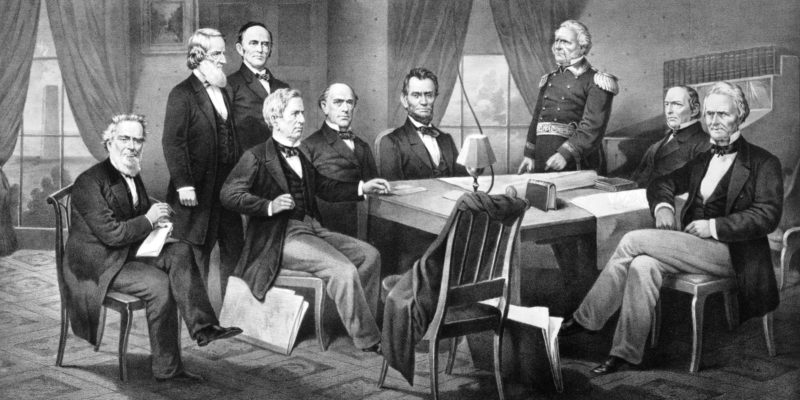
Lincoln served as a captain in the army during the Black Hawk War (1832), a conflict in the American Midwest against the Sauk, Fox, and Kickapoo indigenous tribes. Upon his return from the front, he started courting Mary Todd and married her in 1842. They had four sons.
While in Illinois, he joined the Whig Party and served as a member of the House of Representatives from 1847 to 1849. During this period, he famously opposed the US intervention in Mexico, which cost him his reelection to the House.
Following the dissolution of the Whig Party in 1854, Lincoln became one of the founders of the Republican Party. He was nominated for vice president on the Republican side, but lost to William L. Dayton, a congressman from New Jersey.
Presidential election
His prowess as a public speaker gained him widespread attention. At the 1860 Republican National Convention, he contended against powerful nominees within his party for the candidacy for President of the United States of America.
After winning the party's nomination, Lincoln had to face two Democratic candidates in the general election (since the Democratic Party had split its forces) and one from the Constitutional Union Party. Lincoln imposed himself in the presidential election with 39.82% of the total votes.
His rise to the presidency stirred controversy from the very beginning. He survived an assassination attempt in Maryland and arrived in Washington in 1861 hiding in disguise, a source of mockery among his opponents.
His policies were what Henry Clay called the "American System". In the first place, his protectionist tariff policy benefited the industrialized North while it was more unfavorable to the agricultural South. In addition, his "internal improvements" involved public investment in infrastructure and an inflationary banking policy.
These measures, which had been anticipated before Lincoln's formal inauguration, caused seven Southern states to secede from the Union and declare their independence. Thus was created the Confederate States of America (commonly referred to as "the Confederacy"), with Jefferson Davis as its president.
End of slavery
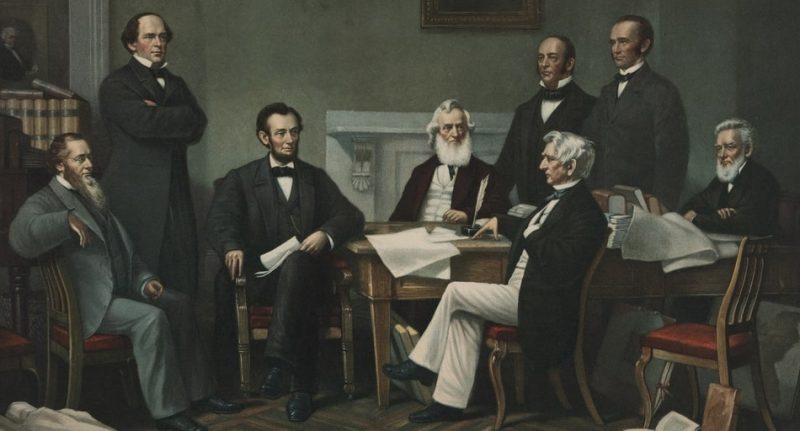
One of the key points in the break between the North and South of the United States was the abolition of slavery, which Lincoln proclaimed in 1863. This turned the claim of the rebellious states into a moral, liberating quest.
All black slaves in the Union territories were granted freedom. However, this did not occur in the secessionist states, which instead defended slavery as the right of the ruling whites and as the "natural state" of submission of the black race to the superiority of the white race.
The Civil War
The military confrontation between Union and Confederate States began in April 1861 with the Battle of Fort Sumter in South Carolina. As a result, four additional states joined the initial seven rebels.
The war lasted four years, during which time Lincoln demonstrated his leadership skills, delivering famous speeches like the Gettysburg Address in 1863. Still, his personal stance at the beginning of the conflict was that of mediator between the warring sides.
However, following several Union defeats under general George Brinton McClellan, Lincoln decided to launch a more open and radical offensive. To this end, he gave command to General Ulysses S. Grant, a controversial figure.
From that point on, the tide of the war turned in favor of the Union, and in April 1865 their military forces captured Richmond, Virginia, the designated Confederate capital. Lincoln, sitting at the desk of former president Davis, addressed the people, reasserting the Union's control over those territories.
Re-election of Abraham Lincoln
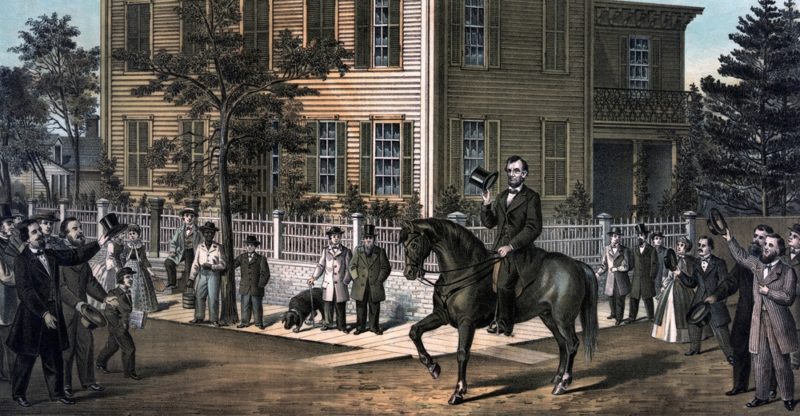
A new internal party election in 1864 pitted Lincoln against General Ulysses S. Grant, though the latter had not expressed any interest in such a candidacy. Lincoln won the contest, and subsequently emerged victorious in the general elections, securing 55.02% of the total votes. He began his second term in March 1865.
Reconstruction
Following his reelection, Lincoln's political discourse centered around reconciliation. His aim was to prevent the former Confederate States from becoming entirely alienated from the rest of the nation, even though their defeat was already evident.
Thus began Reconstruction, the process during which the South was forced to end slavery as any secessionist aspirations. In exchange, they were granted certain freedom to define their own policies. Reconstruction was implemented through various amendments to the Constitution, and lasted from the end of the war until 1877.
Death of Abraham Lincoln
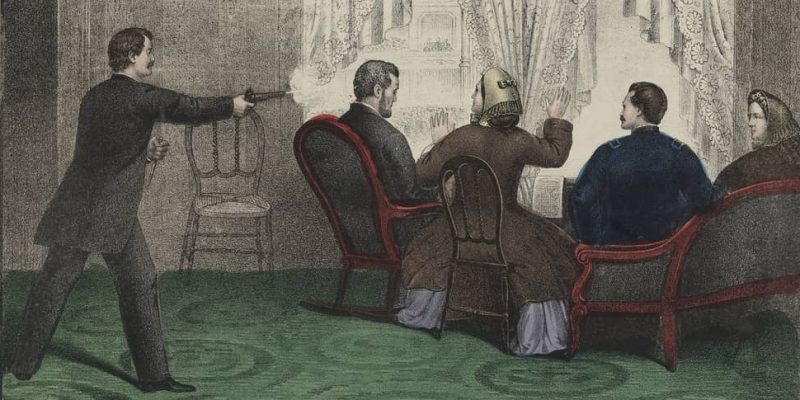
Lincoln was assassinated in April 1865, while attending a performance of Tom Taylor's musical Our American Cousin at Ford's Theatre with his wife. It is a well-known fact that there had already been numerous death threats against President Lincoln’s life, and legend has it that he had had a premonitory dream about it days before.
At the theater, as he was sitting in the box, he was shot in the head from behind. The assassin was actor John Wilkes Booth, a sympathizer of the Southern cause. Lincoln agonized in a coma for nine hours, dying the next morning, on April 15. His assassin was captured and hanged.
Lincoln's body was taken through several states by train in an unprecedented funeral procession. His final resting place is Oak Ridge Cemetery in Springfield, Illinois.
Memorials and recognition of Abraham Lincoln
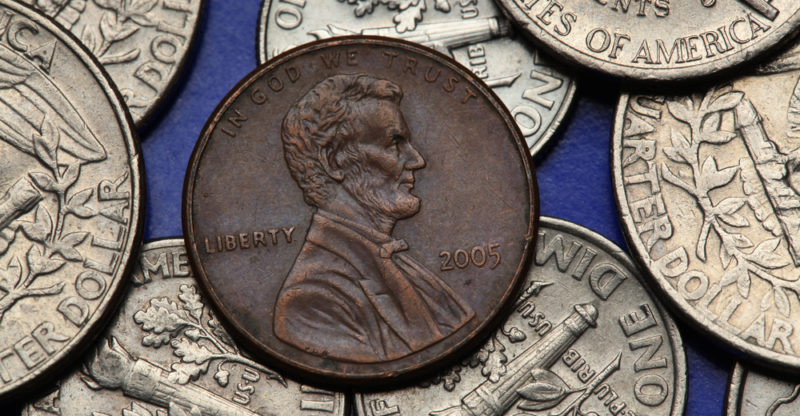
Lincoln is regarded as a national hero, the preserver of the Union and savior of the nation, a protector and defender of what he called the "government of the people, by the people, for the people". In his lifetime, he was affectionately nicknamed "Honest Abe" and "the Great Emancipator", and for many freed slaves, he became a personal hero.
Lincoln’s portrait appears on US currency and on postage stamps. A gigantic full statue stands at the Lincoln Memorial in Washington, D.C., measuring 20 ft (6 m) tall and 20 ft (6 m) wide.
Abraham Lincoln quotes
- “It often requires more courage to dare to do right than to fear to do wrong.”
- "You can fool some of the people all of the time and all of the people some of the time, but you cannot fool all of the people all of the time."
- “Whenever I hear anyone arguing for slavery, I feel a strong impulse to see it tried on him personally.”
- "A friend is one who has the same enemies as you have."
- "Nearly all men can stand adversity, but if you want to test a man's character, give him power."
References
- “Abraham Lincoln”. Wikipedia.
- “Abraham Lincoln”. Biografías y Vidas.
- “Abraham Lincoln”. The White House.
- “Abraham Lincoln, el granjero que llegó a presidente...”. Infobae.
- “Abraham Lincoln”. The Enciclopaedia Britannica.
- “Abraham Lincoln (1809-1865)”. BBC.
Explore next:
Was this information useful to you?
Yes NoThank you for visiting us :)